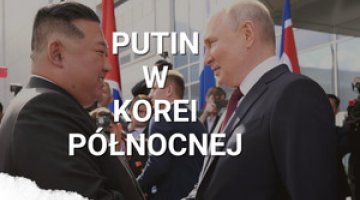The US is hitting Russia with further sanctions
On 1 May, the United States expanded its sanctions against Russia on another 29 individuals and 250 entities incorporated in the Russian Federation and third countries. The items targeted include:
- companies involved in assisting Russia in its war effort (around 150, including 16 from China, Turkey, Kyrgyzstan and Malaysia). These mainly include defence sector companies (for example, two subsidiary companies of Rosatom), as well as the industrial, technology and transport sectors;
- companies involved in making deliveries to Russia of nitrocellulose, which is used in the production of gunpowder (14 companies, including two from China);
- 10 companies involved in supporting Russia’s biological and chemical weapons development programme;
- companies involved in circumventing the previously imposed restrictions. The sanctions have targeted more than 60 entities, including 35 from Azerbaijan, Belgium, China, Turkey, Slovakia and the United Arab Emirates; most of these are logistical companies which have managed to build comprehensive supply chains for delivering electronic devices and sub-assemblies to Russia, for example for the needs of the Kamaz automotive plant, which manufactures armoured vehicles for the army, or supplied components for Russian LNG projects;
- individuals linked with Russian oppositionist Alexei Navalny’s death: three representatives of Russia’s Federal Penitentiary Service, including the director of Penal Colony no. 3, in which Navalny died, have been designated.
As a consequence, all property of the persons above that are in the United States are blocked, and all transactions by U.S. persons that involve any property of designated or blocked persons are prohibited.In expanding the restrictions, the US administration confirmed the previously introduced procedure for removing the targeted companies and individuals from the lists. As noted, the purpose of the sanctions is not to punish, but to bring about a positive change in how the sanctioned entities operate.
Moreover, on 30 April the US Senate also enacted a law introducing an embargo on the import of low-enriched uranium (LEU) from Russia. The document, which the House of Representatives had adopted in December 2023, now requires the president’s signature, which is expected soon. The ban will become valid 90 days after the document comes into effect. However, by 1 January 2028 the US Department of Energy may conditionally authorise the supplies of LEU from Russia, if the continuity of operation of US nuclear plants is at risk due to the lack of alternative sources of this raw material. The law’s coming into effect will also equate to the unblocking of $2.7 bn in funds to support the development of the potential for nuclear fuel production in the US, which the Congress earmarked for this sector at the beginning of this year. The law will remain in force until 2040.
Commentary
- The US has been consistently expanding its restrictions linked with the Russian invasion of Ukraine. At present, Washington’s sanctions lists include more than 4500 entities, with the biggest number being added in one go in February 2024 (more than 550). In recent months, the US administration has increasingly expanded the restrictions to entities from third countries, which have been involved in supporting Russia in circumventing sanctions. This in particular applies to the supply of technology and electronics to the armaments sector. Past experience has shown that this instrument is sufficiently effective in disrupting the supply chains for providing sanctioned goods to the Russian Federation. In recent months, for example, Washington has succeeded in significantly reducing the scale of services provided to Russian entities by Turkish and Chinese banks. However, the fight against sanctions evasion is hard work because each company sanctioned is relatively quickly replaced with new market players who devise further methods for evading the restrictions.
- It is worth noting that more companies involved in the Arctic LNG 2 project being implemented by the Novatek company (whose co-owner Gennady Timchenko has close ties to Vladimir Putin) have been put on the sanctions list. Despite the restrictions introduced previously, including on the supply of technology, and the fact that in 2023 the US imposed sanctions on the Arctic LNG 2 company which operated the facility, the company managed to launch the production of liquefied gas in December 2023. However, it has not as yet exported a single tonne of LNG. This is because the companies which were expected to provide it with a fleet of gas carriers have withdrawn from their participation in this project (see ‘Russia: Arctic LNG 2’s capacity is reduced due to sanctions’). The new US restrictions targeting this project are proof of Washington’s resolve to halt the development of this facility, and in the long-term perspective, of Russia’s LNG sector as a whole.
- It should be noted that Red Box Energy Services Pte Ltd, a Singaporean company which continued to provide services to Novatek as recently as this year (in violation of US sanctions) has also been put on the sanctions list alongside the vessels it operates. Its ships supplied the technology modules which Russia used to build a production line intended for Arctic LNG 2. This company is an element of the Red Box Group, a Dutch capital group which continued to cooperate with the Russian LNG sector despite the 2022 Western technology embargo. The fact that the Singaporean company has been sanctioned can be interpreted as a warning sign from the Americans to other Western companies which continue to cooperate with Russia and are violating the sanctions regime.
- Journalistic investigations have revealed that Western companies are very often involved in the process of evading sanctions, although at present they rarely face penalties for failing to respect the valid restrictions. It should be emphasised in this context that sanctions evasion is not considered a crime in all states (the EU adopted the relevant directive as late as mid-April 2024, and the member states are required to incorporate its provisions into their national legislation within 12 months; see ‘The West’s sanction pressure on Russia is rising’). In addition, the US rarely imposes its secondary sanctions on Western companies. Washington mainly intends to persuade them to withdraw voluntarily from their sanctions evasion, which increases the effectiveness of these measures. The US administration has also attempted to dissuade third-country companies from supporting Russia by proposing to remove them from its sanctions lists. At the end of April, for example, the restrictions were lifted from a Turkish forwarding company and a tanker it owned. These had been sanctioned for disregarding the price cap on Russian oil exports. However, these companies are aware that Washington will be monitoring their operations, and that if they return to banned practices they may be exposed to very serious consequences.
- The Congress’s decision to enact the law banning the import of low-enriched uranium (LEU) from Russia comes as a major blow to the Russian energy sector because it may further reduce Russia’s export revenues. Russia is the biggest foreign supplier of nuclear fuel to the US; it accounts for 24% of the fuel used by the more than 90 commercial reactors across the United States (US producers account for around 27% of these supplies). In 2023, the US imported nuclear fuel worth a record $1.2 bn from Russia. The halt in Russian imports will likely result in a hike in the price of enriched uranium; however, this will boost the competitive advantage of US production and contribute to a further development of this sector in the US. The embargo is not expected to seriously jeopardise the operation of US-based reactors because the American companies have built up their fuel reserves in anticipation of this embargo. Washington has also stepped up its support for domestic producers: in April the US administration confirmed that for the first time in history a facility in Ohio had produced almost 100 kilograms of a more efficient fuel known as high-assay low-enriched uranium (HALEU). Rosatom has so far monopolised trade in this fuel. The US decision to ban its imports may also encourage the European Union to follow suit; the EU member states have been discussing this issue for more than a year. However, it should be noted that the increased nuclear cooperation between Hungary and Russia reduces the prospects for introducing a similar EU-wide ban.




